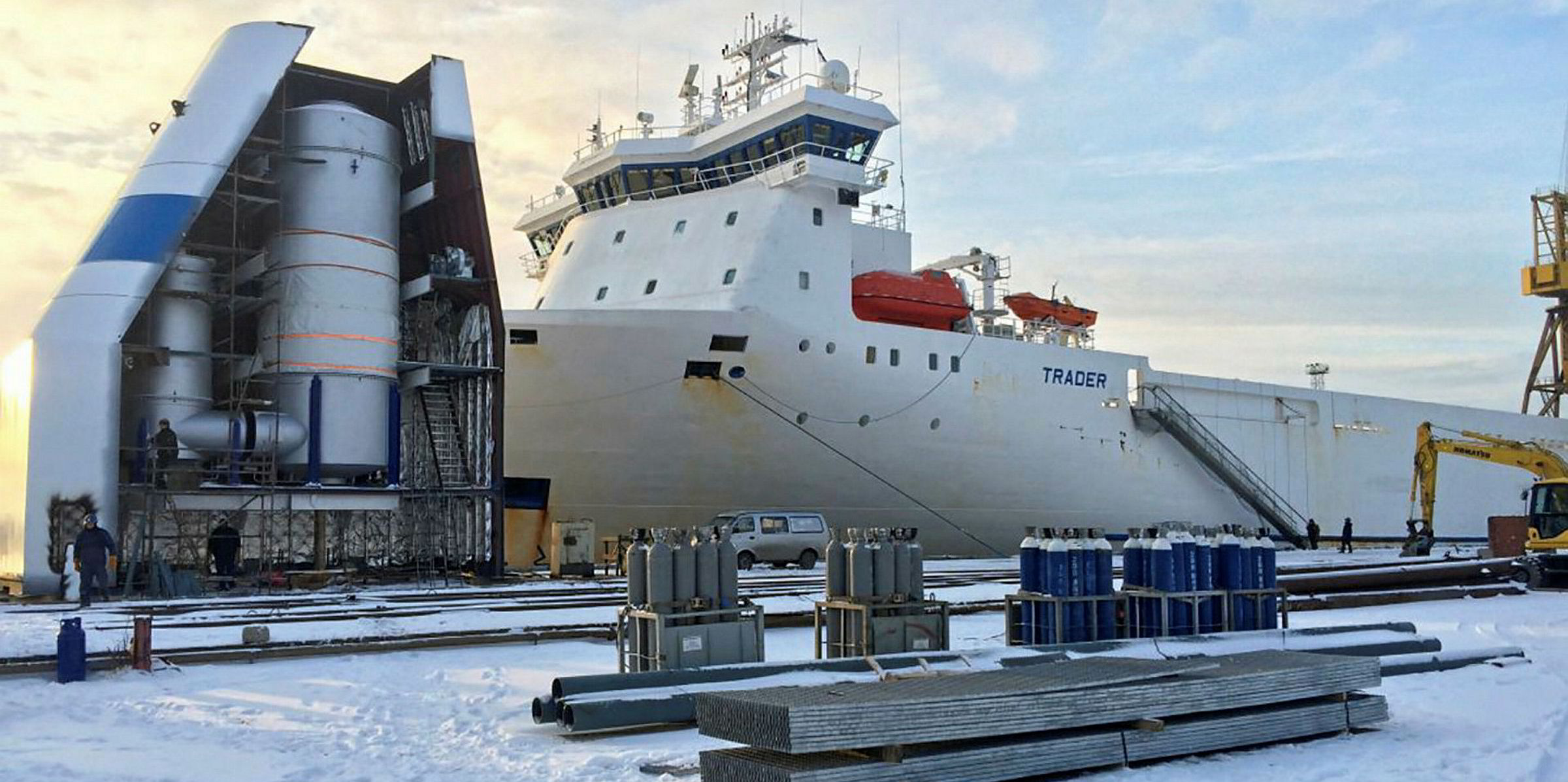A new study raises more concerns over open-loop exhaust gas scrubbers' potential harm to marine life, branding the devices a "direct polluter" of the seas.
Further research is needed to better quantify and evaluate the total impact on the marine environment of this new and emerging source
German 2018 report
The review by the German Environment Agency focuses on waterborne emissions of polycyclic aromatic hydrocarbons (PAH), which are compounds found in coal and tar.
"The increasing EGCS [exhaust gas cleaning systems] on ships may improve the air quality in harbour cities and at sea but will be a new direct pollution source to the marine environment, in particular due to fossil fuel combustion residuals like PAH," says the December 2018 report on a study funded by the German agency.
"Further research is needed to better quantify and evaluate the total impact on the marine environment of this new and emerging source."
Report to go before IMO subgroup
The German review comes to light six weeks after TradeWinds reported on studies by marine biologists who claim open-loop scrubber effluent may harm marine life, citing several potentially toxic metallic substances.
TradeWinds obtained the 16-page analysis from a member of a coalition of non-government organisations that serves as an IMO watchdog.
The IMO plans to reveal the internal document to its subcommittee on pollution prevention and response during a London conference at its headquarters from 18 to 22 February.
IMO officials declined to comment and answer questions on the report.
On 29 January, Carnival Corp officials, who are also members of the pro-scrubber Clean Shipping Alliance 2020, refuted such studies.
They said scrubber discharge has "no environmental impact" and the scientists' claims are not based on any data.
In defence of scrubbers, an outspoken advocate says that other forms of transport also pollute the environment, not just shipping.
"I am sure that using cars, or flying planes or taking trains all can be said to have a detrimental impact on the environment," Exhaust Gas Cleaning Systems Association (EGCSA) chairman Nicholas Confuorto tells TradeWinds.
"If you drop drinking water in the sea, someone could come up with a study indicating that it may harm the sea because it dilutes the alkalinity and that further studies need to be made."

'Real options'
Either using scrubbers or burning low-sulphur fuel oil are the "only real options" that give shipping an economically feasible way to meet the looming IMO 2020 sulphur cap, says Confuorto, who is also chief operations officer for scrubber-maker CR Ocean Engineering.
All other options may at some point in the future become feasible but as of now they are not widely possible
Nick Confuorto
"All other options may at some point in the future become feasible, but as of now they are not widely possible," he says.
"I am sure that when that happens there will be other entities with special interests that will develop reports stating that those technologies harm the environment also."
The German analysis showed levels of PAH and trace metals vanadium and nickel to be five times higher where the open-loop system releases the effluent into the sea than where it takes in fresh seawater.
"It should be noted that the metal concentrations measured are influenced by the alloy of tubing and sampling points, corrosion protection and antifouling systems," the report says.
"Therefore, metals may also originate from these sources and not only from the 'scrubbing' process."
The review compared discharge results from open-loop and closed-loop scrubbers onboard five ships sailing in the sulphur-emission control areas of the North Sea, Baltic Sea and English Channel from May to November 2017.
It focused on open-loop systems because they release effluent into the sea, whereas closed-loop systems recirculate it and separate oil residue into a sludge tank then dispose of both on land.
"Oil is accumulating in the discharge of both systems and was not present in the seawater inlet samples," the report says.
"This oil can have different sources like the HFO [heavy fuel oil] itself but also lubricants of the engine."

'Discrepancy' between effluent results
The German study also revealed inconsistencies between discharge results manually collected from the open-loop systems and those shown by an onboard sensor.
"These results indicate a discrepancy between the data generated by the ship-monitoring unit and parallel in situ measurements, especially concerning turbidity and PAH," the report says. "In particular, the results of the onboard system suggest that a higher calibration and maintenance frequency of the systems is necessary."
It also recommends that crew should be trained to verify data plausibility in order to react immediately to system problems.




